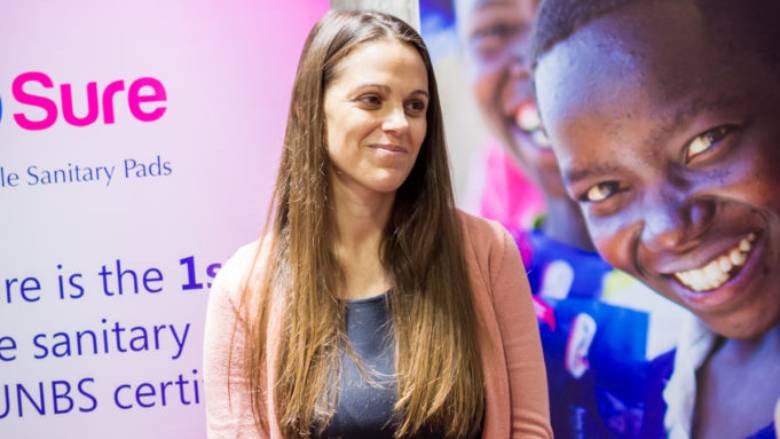
Access to affordable and sustainable menstrual hygiene products (e.g. menstrual cloths, reusable pads, disposable pads, menstrual cups and tampons) is key to improving menstrual health and hygiene. Yet only a fraction of women and girls in developing countries use sanitary products during menstruation. Individuals use specific menstrual hygiene products based on their availability (i.e. production), knowledge (i.e., awareness), income (i.e., affordability), and region (i.e., comfort level of use stemming from the cultural context).
Furthermore, affordability is a strong barrier to access menstrual products, particularly for poor women. In Kenya, 65% of the menstruators cannot afford menstrual products. Even in the U.S., a survey of low-income women finds that nearly two-thirds couldn’t afford menstrual hygiene products such as tampons or pads during the previous year.
Studies show that menstrual products and education, held separately, are not enough. A holistic approach – one that combines education with infrastructure, products, and efforts to tackle the societal taboos and stigma surrounding the issue — is most successful in achieving good menstrual health hygiene and improving development outcomes for women and adolescent girls. To this end, the private sector is playing a crucial role.
Megan Mukuria, founder and CEO of Kenya-based ZanaAfrica, which leverages reproductive health education and sanitary pads as a combined intervention to empower girls and women, says she once asked a young girl in Kenya how she would feel if she were given a year’s supply of sanitary pads. “She shyly put her hand over her face and whispered, ‘I would feel like the whole world loved me.’”

Ms. Mukuria founded ZanaAfrica after working with Kenyan street children and finding that not only were menstrual pads the second largest monthly cost for females, but also that adults did not share information with girls about puberty, “with devastating consequences.” Through its non-profit programs, ZanaAfrica distributes Nia brand sanitary pads coupled with a proven health curriculum that is being scaled with support from the Kenyan Teacher Service Commission. Through sales in commercial markets, they expand access to high quality, low-cost feminine hygiene products. All products feature unique packaging that provides reproductive health and rights information and free resources to women and girls.
“Product access itself creates new positive realities and amplifies outcomes in health, education and safety,” says Ms. Mukuria. “But our products do more than that. They connect a fragmented health and education system. Customers connect however they want to (by WhatsApp, text or talking confidentially directly with a counsellor for free,) and find the answers and reproductive health services they need, whenever they need them.”

Similarly, in India, the hybrid social enterprise Aakar, comprising Aakar Innovations and Aakar Social Ventures, helps women produce and distribute affordable, high-quality sanitary napkins within their communities, while simultaneously raising awareness and sensitization of menstrual hygiene management.
Aakar’s sanitary pad, Anandi, is India’s first and only Government of India lab certified (ISO-17088) nearly 100% compostable and biodegradable sanitary pad. Anandi pads are available at an affordable price and provide women and girls in rural villages and urban areas access to a sustainable solution. Last year, Aakar introduced Anandipads to the commercial market (Amazon, etc.), and a portion of those earnings is going back to villages by providing free/subsidized pads, along with menstrual hygiene education.
At the company, women are at the center of production. Anandi pads are manufactured in 30 operational “mini-factories” across India, Nepal, and eight African countries. The factories are women-supervised and women-operated, facilitating jobs and the opportunity to learn entrepreneurial, marketing, and management skills.
“The training helped me understand more about menstruation and various hygiene practices, and what importance they have in our lives,” said Ramila Ben, 35, who works in Pipaliya District, Gujrat. “I can now teach this to my daughters and other women in the village, as well. The financial and marketing concepts will help me invest my earnings more wisely, and I will be able to generate significant returns."

According to Jaydeep Mandal, founder of Aakar Innovations, more than one million women and girls are consumers of Anandi pads and 400,000 have been reached through its education program. Anandi mini-factories employ more than 700 women earning US$150 per month, and more than 500 women are engaged in selling pads within their villages, earning a seven to eight cent commission per package.


